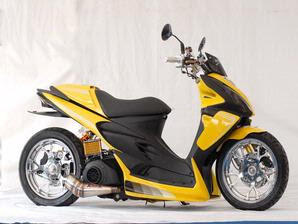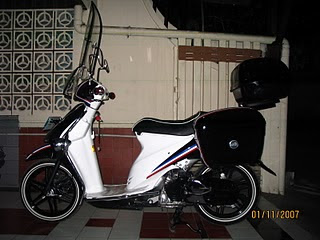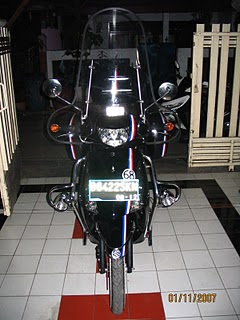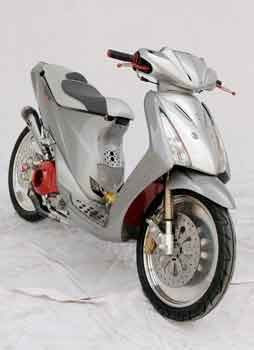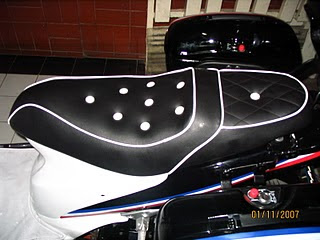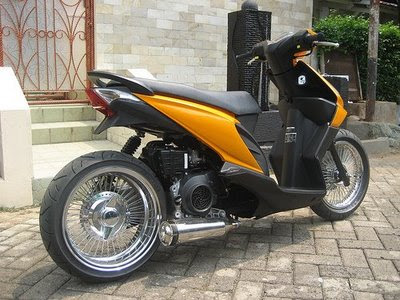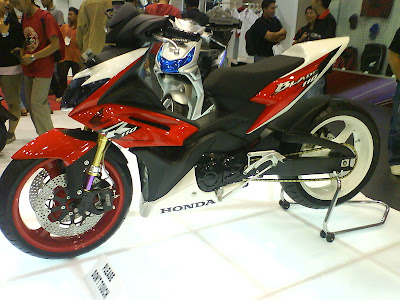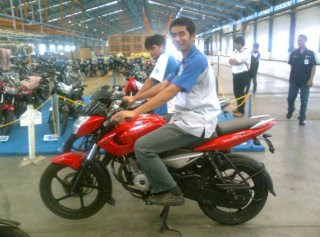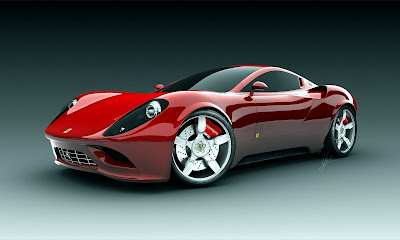New Kawasaki Ninja 250R 2010 Specifications:
Engine type: 4 stroke DOHC
Number & Fill Cylinders: 2 pieces parallel & 124.5 cc
Diameter & Steps: 62 x 41.2mm
Comparison of Compression: 11.6:1
Maximum Power: 23.4Kw (31.4PS) / 11000rpm
Maximum torque: 20Nm/9500rpm
Carburetor: Keihin CVR30 X 2bh
Starter System: Electric Starter
Transmission type: 6-speed, return shift
Dental Ratio: Ke1 2600 (39/15)
2nd 1789 (34/19)
1409 3rd (31/22)
4th 1160 (29/25)
To 5 1000 (27/27)
Ke6 0893 (25/28)
Type Final Drive System: Chain Drive / Chain
Reduction ratio: 3214 (45/14)
Overall Drive Ratio: 8859 @ TopGear
Suspension Front: Telescopic Fork Suspension
Rear Suspension: Monoshock Suspension
Brakes Front: Twin Disc Brake Pot
Rear brake: Twin Disc Brake Pot
Length x Width x Height: 2080 x 715 x 1115mm
Axis Wheels distance: 1390mm
Distance to Land: 140mm
Gasoline Capacity: 18liter
Maximum Weight: 169kg
Differences in the type and character are very different machines kertaspun above. But whether in fact different views in different views. Yesterday we tried the power and strength of the leading manufacturer of both hero Kawasaki Indonesia in Sentul Circuit, Java Barat/18 January 2009. From direct observation of testing until just a ride we can feel the magnitude of any power of each different type of racing machine type. While one side of the Ninja 250R looks great and weighs 169kg bongsor by comparison with the Ninja 150R weighs only 124.5 kg, but power and torque of two-cylinder inline engine is quite large and can not be underestimated. On paper and Ninja 150R also differ in units of PS thin. 150RR has 30.1 250R PS currently has a 31.4 PS.
